African Ministers of Education, Gender and Foreign Affairs, African Union Commision Representatives and Civil Society Organisations on 22nd May 2019 convened in Nairobi, Kenya to develop Africa’s Common Position on Education for women and girls in conflict and post conflict situations including practical solutions for applying transformative Education for Women and girls in conflict and post conflict situations in the continent.
The discussions were pegged on the 2019 African Union theme ‘The year of Refugees, Returnees and Internaly Displaced Persons; Towards Durable solutions for forced Displacement in Africa’with a specific focus on the challenges women and girls face in the event of conflict and the kind of strategies that governments need to apply to integrate them in formal and informal education systems in their home and host countries.
The conference that was hosted by Kenya’s Ministry of Foreign Affairs in collaboration with the African Union Peace and Security Office, Canadian Embassy in Kenya and convened by FAWE brought together 60 participants drawn from 18 countries on the continent, including Ministers of Education, Gender and Foreign Affairs, representatives from the African Union, Civil Society networks and relevant United Nations organs.
Whilst officiating the forum, H. E. Ambassador Dr. Monica Juma, Cabinet Secretary of the Ministry of Foreign Affairs (MOFA), raised concern over the atrocities levelled against women and girls becoming a standard measure of conflict in Africa.
“It is unbelievable that the number of girls abducted, number of women and girls raped, and number of women forced into marriages have become legitimate and standard indicators of measures of conflict in Africa, this was highly deplorable and completely unacceptable,” noted Ambassador Dr. Juma.
Ambassador Dr. Juma also observed that credible and policy relevant information is critical for an effective response in conflict and post-conflict situations. She however decried the double jeopardy characterizing studies on African conflicts noting that it is largely done by researchers outside the continet, and is primarily driven by male researchers. She however called for an increase in women mediators on the continent to foster peace in conflict and post conflict situations.
On her part, H.E. Ambassador Lisa Stadelbauer, High Commissioner of Canada to Kenya, drew the attention of the delegates to a salient reality on the stark differences between boys and girls in conflict situations, and those in non-conflict contexts in terms of access to quality education.
“Globally 4 out of 5 countries with the largest gender gaps in education are crisis and conflict affected. Girls are nearly two and a half times as likely to be out of school than boys in conflict affected areas. Adolecent girls are nearly 90% more likely to be out of secondary school in conflict affected areas than their counterparts in stable developing countries,” highlighted Ambassador Stadelbauer.
She stressed that Canada has remained steadfast in championing and galvanizing global support and interventions to ensure girls and women in the most challenging circumstances get access to the gender responsive education they need. It was therefore no surprise that during Canada’s G7 presidency in 2018, the country made firm advocacy for gender equality in developing countries.
“The Canadian government, the World Bank and the G7 members have committed US$3.8 billion investment to address global gaps in education financing,” noted Ambassador Stadelbauer.
The High Commissioner underpinned Canada’s interest in the outcome document depicting the African Position on the education of women and girls in conflict and post conflict situation in Africa ahead of the Women Deliver Summit in Canada 3—6 June 2019 that would be hosted by Prime Minister Justin Treadue and graced by H.E. President Uhuru Kenyatta of Kenya among other global leaders.
In a statement presented at the conference, the AU Special Envoy on Women, Peace and Security Mme Benita Diop reiterated her commitment to fight for the creation of women mediators on the continent to ensure that women are on the frontline in supporting peace efforts. She also called on AU Member States to implement the UN Security Council Resolution (UNSCR) 1325 as a show of commitment in addressing issues of women and girls in conflict and post conflict situations.
In her 27 years of existence, FAWE has strived to ensure the integration of women and girls survivors of conflict situations in national education systems. Professor Naana Opoku-Agyemang, Chairperson FAWE Africa highlighted how TVET has facilitated this.
“We have implemented an intervention to empower girls through technical and vocational education and training (TVET) in Burundi, Liberia, Guinea, Somalia and Sierra Leone. The project seeks not only to train out-of-school girls, including in careers traditionally reserved for males, but to equip teachers with gender-responsive pedagogy skills and to influence the integration of gender issues into TVET policies and plans in each of the countries” noted Professor Opuku-Agyemang.
FAWE has also created opportunities for out-of-school girls and unemployed women through TVET in Burkina Faso, Liberia, Madagascar, Malawi, Namibia, Nigeria, Sierra Leone and Uganda. This training allowed these girls to establish income-generating activities to improve their chances in life.
The conference provided an invaluable platform for the exchange of knowledge, ideas, best practices and information on dealing with women’s and girls’ education in conflict and post-conflict situations. In Liberia, the uniqueness of the post-conflict context means that while the focus is primarily on women and girls, boys are equally vulnerable and a dual approach has been adopted that caters for boys’ rights to education as well. The Liberian government has constructed schools along its borders to cater for educational needs of refugees and asylum seekers from its neighbouring countries. To cope with the huge numbers of learners, a shift system of learning is used in these areas. In Somalia, the Government has created friendly spaces for girls in every school. South Sudan has a programme targeting out-of-school girls which also integrates a cash transfer component.
Uganda also has a programme that caters for refugee children by offering them education based on the Ugandan curriculum, but taught by teachers from the countries of origin of these children. These teachers are integrated into the Ugandan education system. The country also caters for menstrual hygiene of refugee children. In the case of Burundi, the government administers tests to Burundian children in Tanzanian refugee camps in anticipation of integrating these children into the Burundian education system once they return to their country of origin.
FAWE through the Technical Vocation Education and Training (TVET) programme that was launched in 2009 has continued to provide education solutions for out of school girls and women including those in conflict and post conflict situations in Africa. For intance, the FAWE-Danida TVET Programme (2009-2014) offered 894 out of school girls and women in post conflict situations in Liberia, Guinea, Somalia, Burundi, and Sierra Leonne opportunities to acquire technical and vocational skills, previously dominated by males, ultimately increasing their employability and economic empowerment.
Furthermore, the Conference on Education for women and girls in conflict and post conflict situations culminated to a 11 point recommendation outcome statement that addresses: the establishment and strengthening of TVET institutions including reviewing re-entry criteria as a mechanism to empower out-of-school girls and women in conflict and post-conflict situations. The statement also recommends the support the recruitment and deployment of women mediators in conflict and post-conflict situations to reinforce the gender approach in peace settlement processes; Develop uniquely tailored educational interventions that address the needs of children with disabilities and especially those in conflict regions; support and a Pan-African commitment to fully implement the African Union Continental Education Strategy for Africa (CESA 16-25) and the Gender Equality Strategy (GES) in a bid to ensure that all learners and especially those historically secluded are assisted to acquire quality education among others.
Download:
Conference outcome statement final version
Joint Communique on Education for Women and Girls in Conflict and post conflict situations in Africa



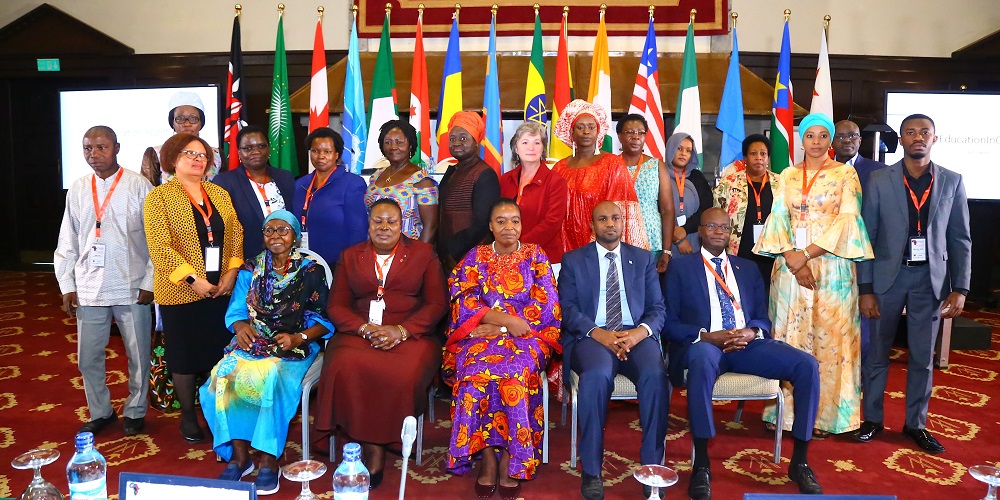
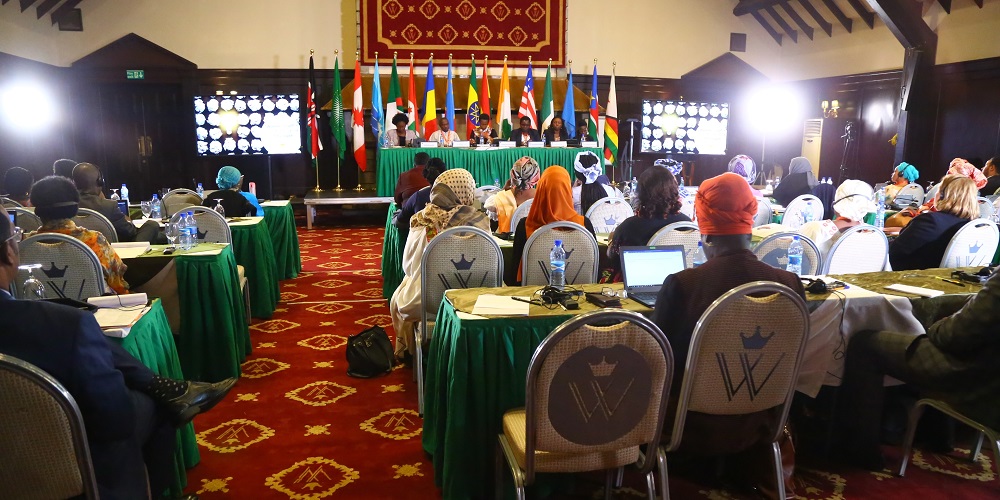
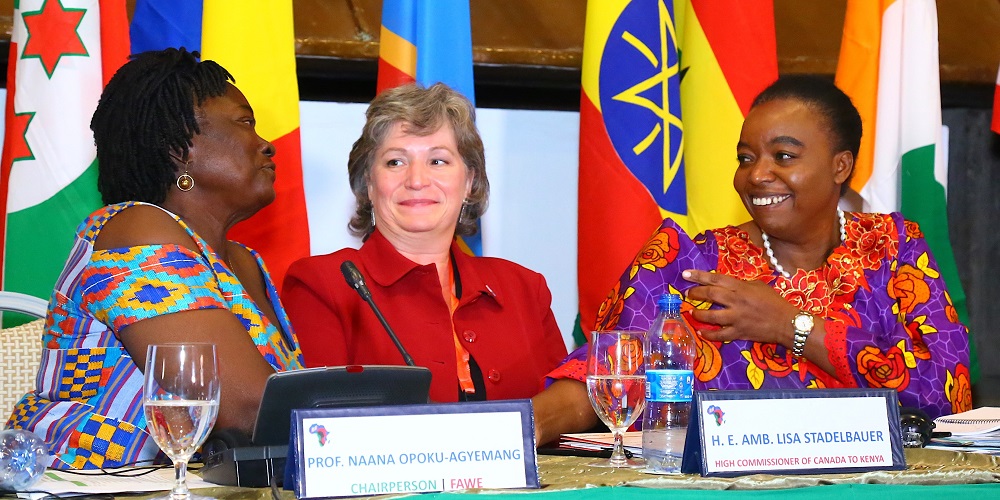
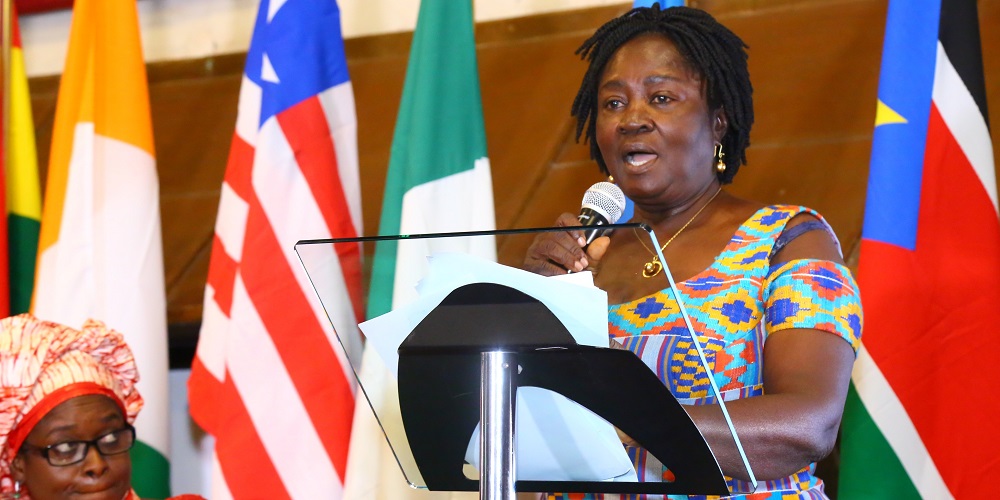
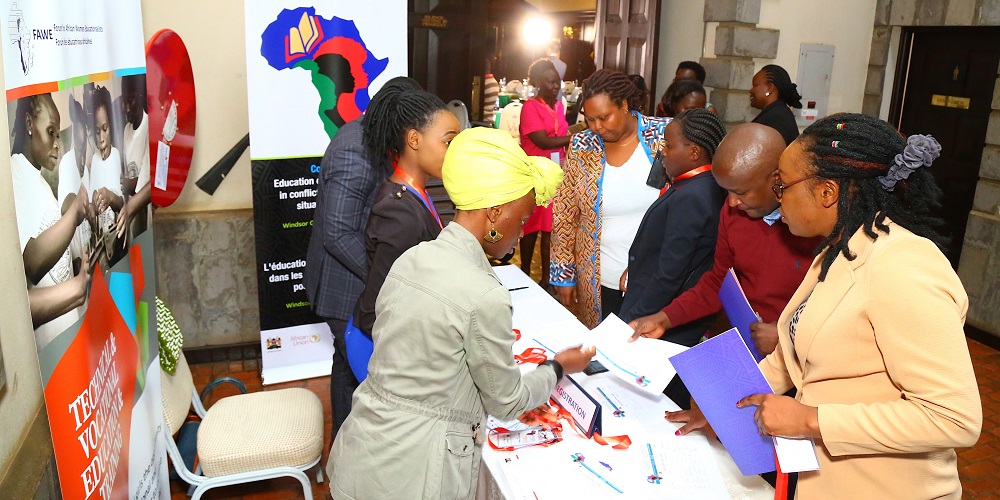
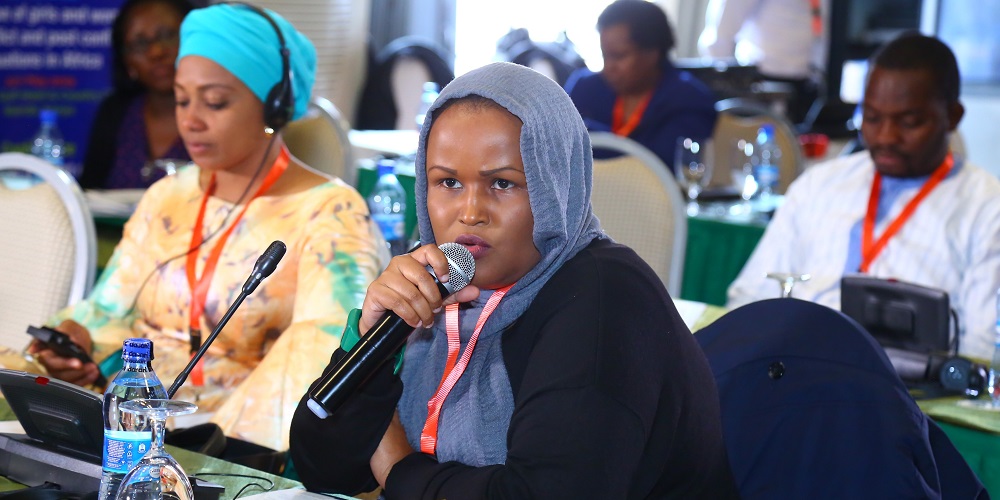
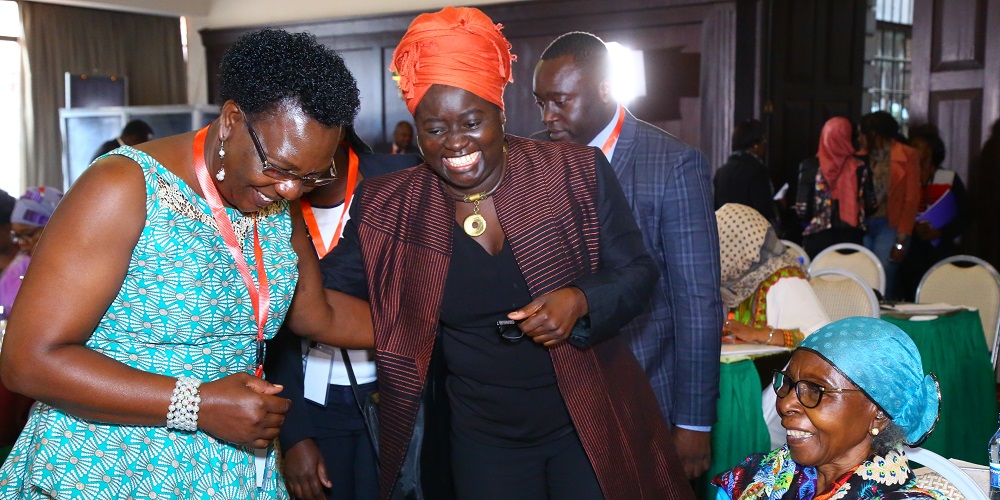
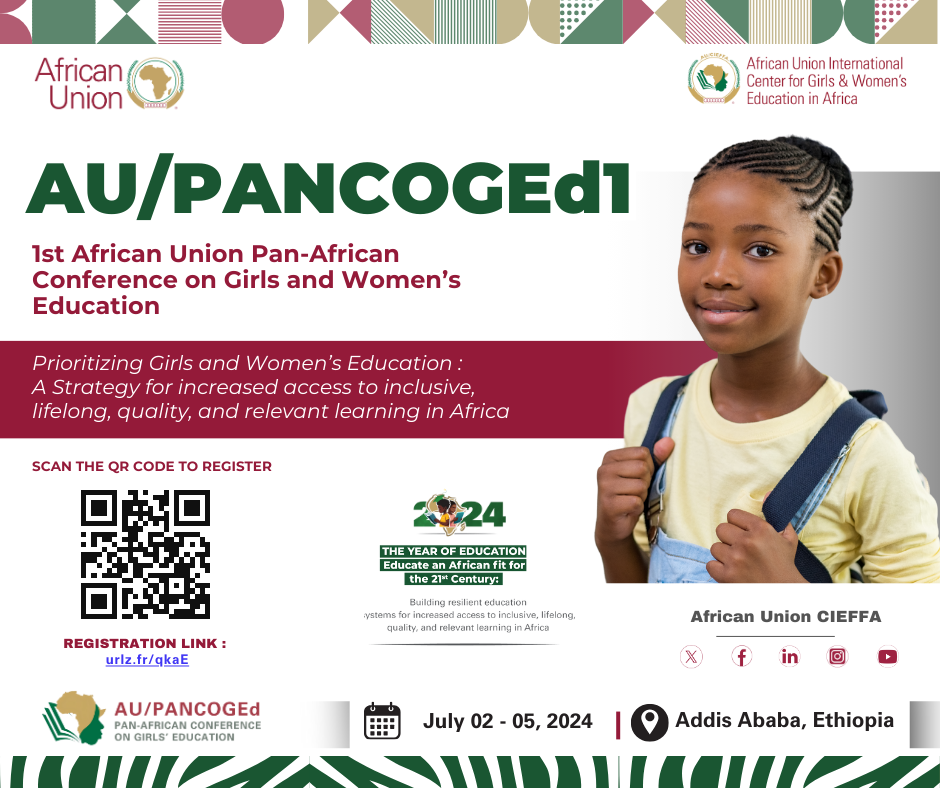
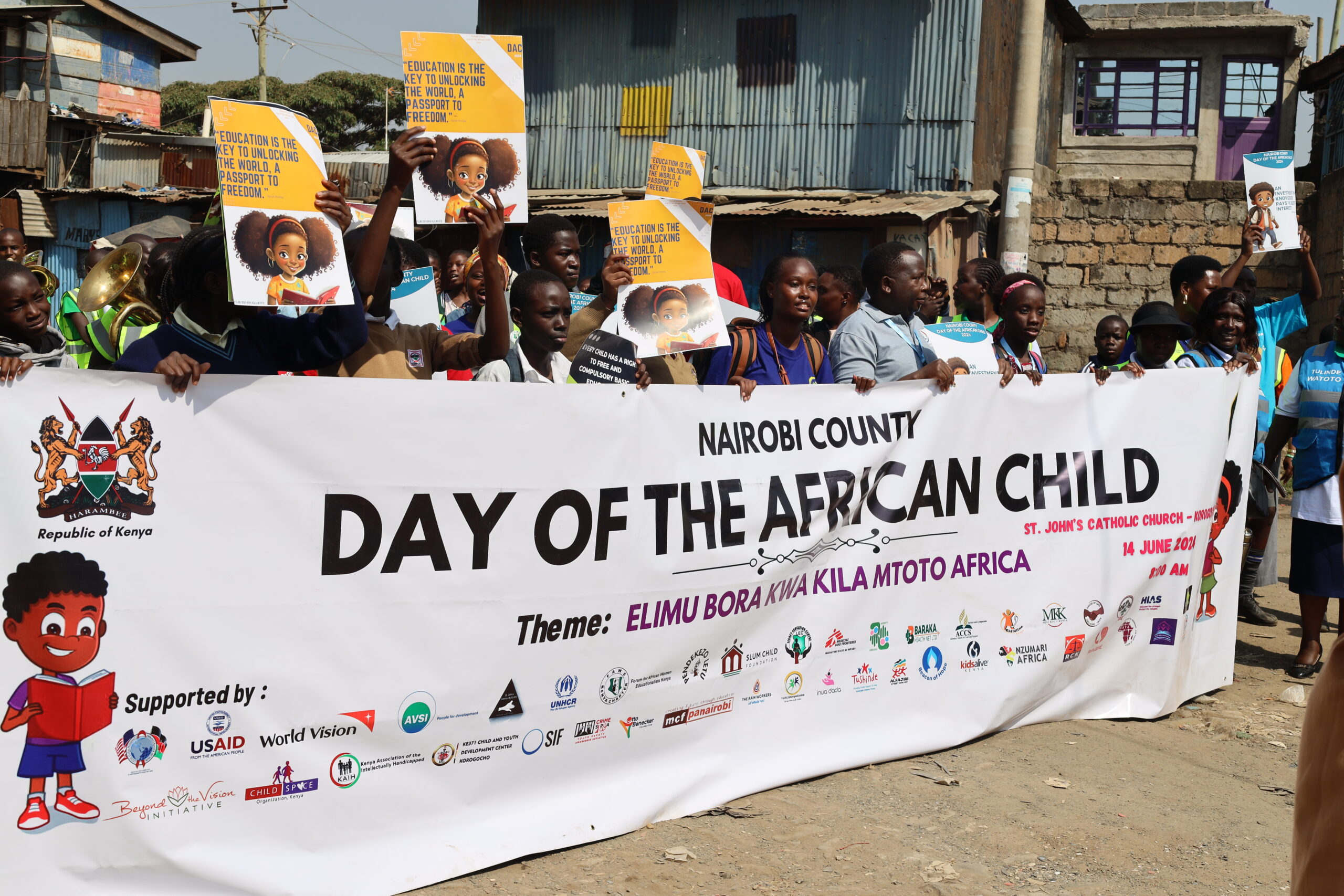
Leave A Comment